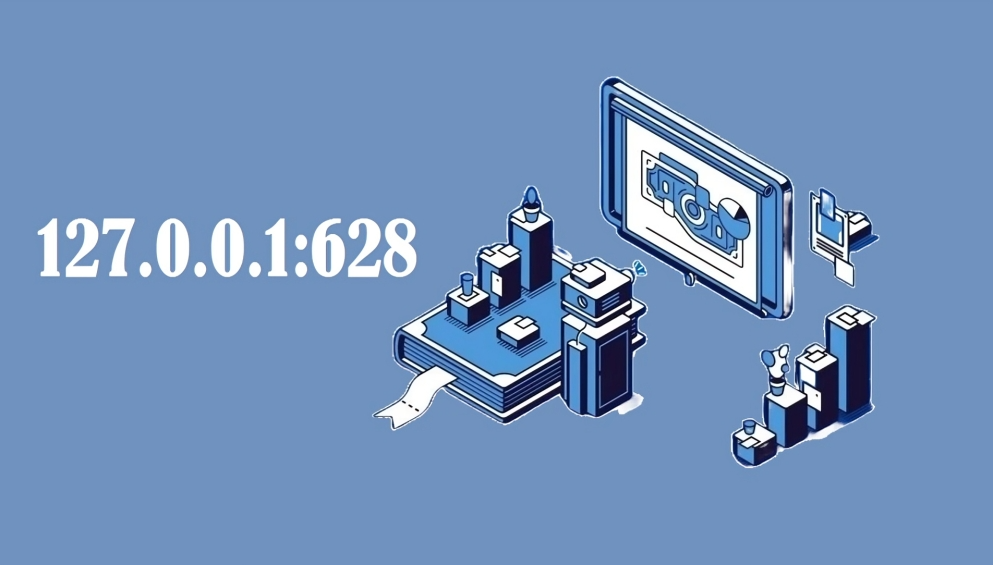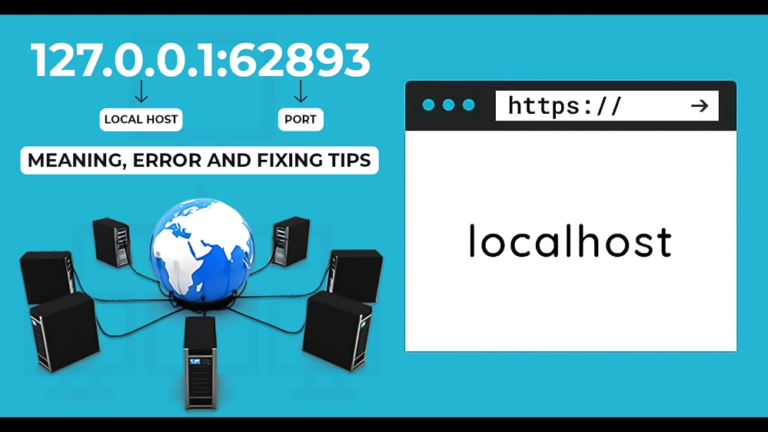In the vast world of networking and computer systems, specific terms like “127.0.0.1” or “localhost” might sound familiar, especially to those with a technical background. Yet, for the vast majority, these terms are surrounded by mystery and confusion. If you’ve encountered the term 127.0.0.1:62893, you’re likely seeking a deeper understanding of its meaning and relevance. In this article, we’ll demystify the concept of 127.0.0.1:62893, explaining its function within the world of networking, its uses, and why it’s essential for troubleshooting and local development.
What is 127.0.0.1?
First, it’s crucial to break down the foundational elements of 127.0.0.1 before diving into the specifics of 127.0.0.1:62893. In simple terms, 127.0.0.1 is a loopback IP address commonly used in networking to refer to the local host or local machine. Whenever a computer uses this IP address, it communicates with itself. This is essential for various reasons, mainly for testing network applications and services.
Loopback addresses, of which 127.0.0.1 is the most common, are reserved for internal use. They provide a convenient way for a system to test network services without needing an external connection. Whether running a web server, database, or any other local service, using the localhost IP allows developers and network engineers to simulate how an application would work in a real-world scenario.
Understanding Ports and 62893
Every IP address, including 127.0.0.1, works alongside ports to manage specific communications between devices or services. A port is a channel that directs network traffic to the appropriate service or application. Ports are numbered, ranging from 0 to 65535, and each number can be assigned to a particular process or service.
In this context, 62893 refers to one of these port numbers. Ports from 49152 to 65535 are classified as dynamic or private ports, meaning they are often used for temporary or private services, typically by applications that need to open a temporary communication channel. The port number 62893 is not reserved for any specific protocol or service, meaning it can be dynamically allocated for various purposes.
When the IP address 127.0.0.1 is combined with the port number 62893, it indicates a local connection on port 62893. This could be for a local web server, a database service, or any other application running on your machine that requires network communication.
The Role of 127.0.0.1:62893 in Local Development
One primary use of the combination 127.0.0.1:62893 is in local development environments. When developers build web applications, they often need to test how their application behaves in a networked environment. However, rather than deploying the application to the web for every test, developers will usually run it locally using 127.0.0.1 and a specific port, such as 62893.
For instance, a developer is working on a new website or web service. Instead of launching it on a public server, they can start it locally, and the browser would access the website using 127.0.0.1:62893. This setup allows the developer to see the application as if it were hosted on a live server but without the overhead of deploying it. It’s faster, more secure, and much easier to troubleshoot during development.
Similarly, this setup is not limited to web applications. Any application that needs to run network services — such as a database or messaging system — can be tested locally. Applications like MySQL, PostgreSQL, and Apache use similar IP and port combinations for local testing before being deployed to production environments.
Security Implications of 127.0.0.1:62893
From a security standpoint, 127.0.0.1:62893 represents a local connection, meaning that, by design, it’s only accessible from the machine itself. It’s effectively sandboxed away from external threats. No external user or device on the broader internet can access services running on 127.0.0.1, making it an excellent tool for development, testing, and internal debugging.
However, it’s important to remember that just because the local host is isolated from the internet doesn’t mean it’s entirely risk-free. If you’re running insecure applications or misconfiguring certain services, you could expose your local machine to threats or introduce bugs into the system. For example, if an application with poor security practices can run on 127.0.0.1:62893, it could still leave your machine vulnerable to exploits, especially if those applications are later moved to a public server without being properly secured.
Everyday Use Cases for 127.0.0.1:62893
The localhost port combination 127.0.0.1:62893 is frequently seen in various real-world applications and scenarios. Below are some everyday use cases where this combination plays an essential role:
Web Development
As mentioned earlier, many developers use localhost to run web applications locally. They configure their applications to listen on a specific port, like 62893, allowing them to test the web app’s functionality without affecting a live environment. This practice is essential to the development process, providing a safe and controlled space for coding, debugging, and refining an application before deployment.

Database Testing
Many database management systems (DBMS) allow local instances to run using the loopback address. For example, a developer might start a local database instance, such as PostgreSQL, and connect to it using 127.0.0.1:62893. This approach lets them test queries, database structures, and configurations in isolation before making the database available to external users or clients.
Network Service Simulations
Localhost is often used to simulate network environments. Whether simulating a messaging service, running an email server, or hosting a virtual machine, 127.0.0.1:62893 can be part of an intricate test environment. Many IT professionals and system administrators rely on such setups to prototyping network configurations and ensure that services behave as expected before going live.
APIs and Webhooks
In a world where APIs and webhooks are crucial for integrating different services, local development often involves testing how these components communicate. Developers can run the API server and the client on 127.0.0.1, specifying port 62893 for one of the services to ensure the integration works smoothly.
Troubleshooting Issues with 127.0.0.1:62893
While 127.0.0.1 is designed to be reliable, occasional issues might arise when working with local ports like 62893. Below are some common problems and how to address them:
Port Conflicts
One of the most common issues developers face when working with ports is the dreaded “port already in use” error. This occurs when another service on the machine already uses the desired port, in this case, 62893. To resolve this, you can terminate the existing service occupying the port or select a different available port for your application.
Firewall Restrictions
Though local host connections are usually free from firewall interference, specific configurations or security software might block access to certain ports. Ensure that your firewall settings are not restricting traffic on 62893 or any other port you work with.
Misconfigured Applications
If an application isn’t correctly set up to listen on 127.0.0.1:62893, it might not be accessible when running or testing it. Double-check the application’s configuration files or start scripts to ensure it’s bound to the correct IP address and port.
Conclusion
The combination 127.0.0.1:62893 represents a powerful tool for developers, system administrators, and network professionals. By understanding how localhost works and leveraging specific ports, like 62893, you can create isolated environments to test, develop, and troubleshoot various applications and services without needing an external network connection.
Whether you’re building the next big web app or simply experimenting with a new database configuration, 127.0.0.1:62893 offers a safe and secure way to simulate real-world scenarios locally. Understanding this key networking concept can help improve your troubleshooting skills, streamline your development process, and make your applications more robust and reliable.
FAQs
What is 127.0.0.1:62893?
127.0.0.1:62893 refers to a local host IP address with port 62893, often used for local testing and development.
Why is 127.0.0.1 called localhost?
127.0.0.1 is a loopback address that refers to the local machine, enabling internal communication without an external network.
What is the Role of port 62893?
Port 62893 is dynamically assigned and can be used by applications for local communication or testing services.
Can external devices access 127.0.0.1:62893?
No, 127.0.0.1 is restricted to the local machine and cannot be accessed externally.
How do I troubleshoot issues with 127.0.0.1:62893?
Check for port conflicts, misconfigurations, or firewall settings that may block access to the port.


